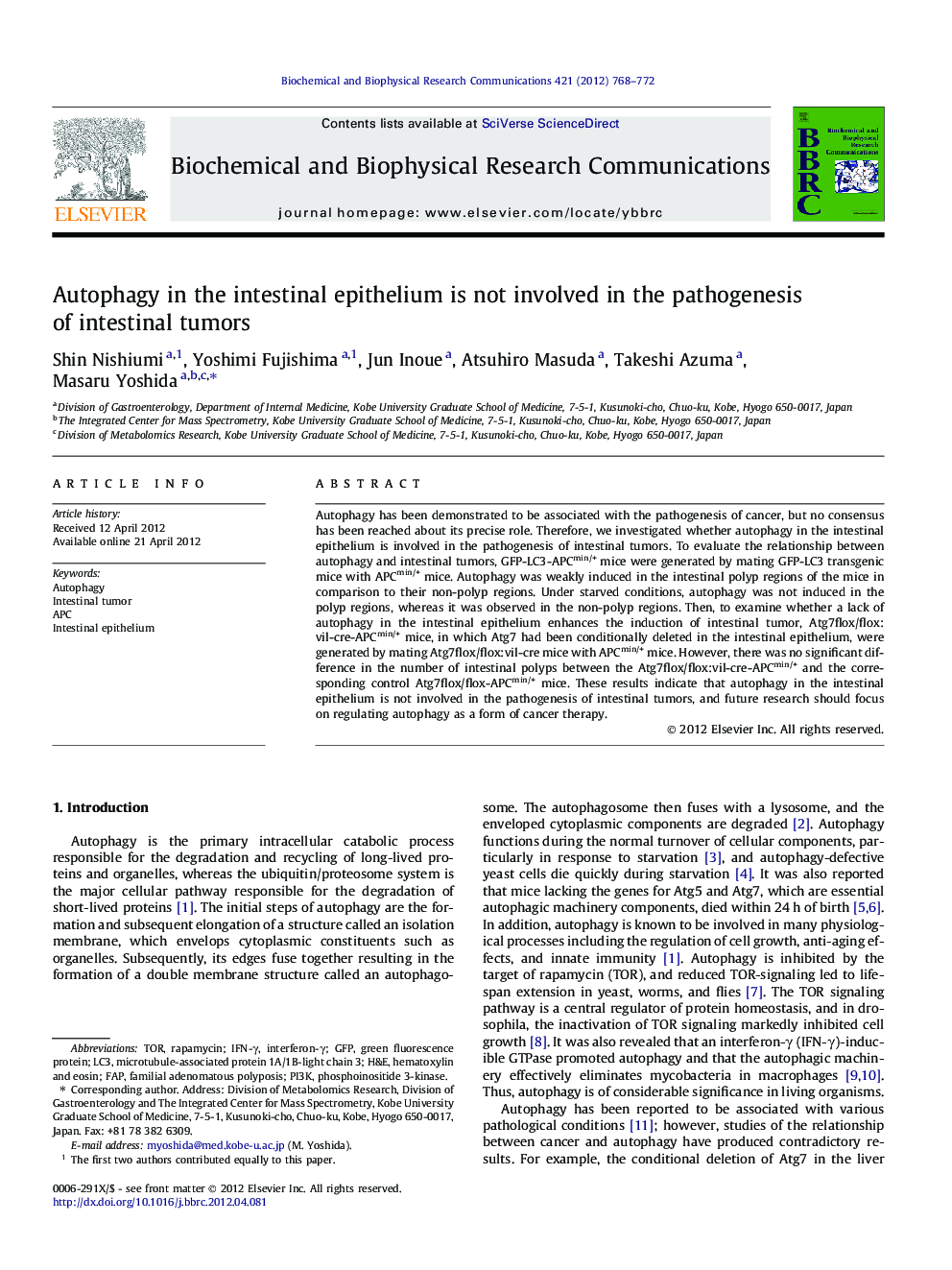| Article ID | Journal | Published Year | Pages | File Type |
|---|---|---|---|---|
| 1929770 | Biochemical and Biophysical Research Communications | 2012 | 5 Pages |
Autophagy has been demonstrated to be associated with the pathogenesis of cancer, but no consensus has been reached about its precise role. Therefore, we investigated whether autophagy in the intestinal epithelium is involved in the pathogenesis of intestinal tumors. To evaluate the relationship between autophagy and intestinal tumors, GFP-LC3-APCmin/+ mice were generated by mating GFP-LC3 transgenic mice with APCmin/+ mice. Autophagy was weakly induced in the intestinal polyp regions of the mice in comparison to their non-polyp regions. Under starved conditions, autophagy was not induced in the polyp regions, whereas it was observed in the non-polyp regions. Then, to examine whether a lack of autophagy in the intestinal epithelium enhances the induction of intestinal tumor, Atg7flox/flox:vil-cre-APCmin/+ mice, in which Atg7 had been conditionally deleted in the intestinal epithelium, were generated by mating Atg7flox/flox:vil-cre mice with APCmin/+ mice. However, there was no significant difference in the number of intestinal polyps between the Atg7flox/flox:vil-cre-APCmin/+ and the corresponding control Atg7flox/flox-APCmin/+ mice. These results indicate that autophagy in the intestinal epithelium is not involved in the pathogenesis of intestinal tumors, and future research should focus on regulating autophagy as a form of cancer therapy.
► Autophagy was readily induced in the non-polyp intestinal tissues of APCmin/+ mice. ► Under starved conditions, autophagy was not induced in the polyp regions. ► Intestinal epithelial autophagy is not involved in intestinal tumors.
